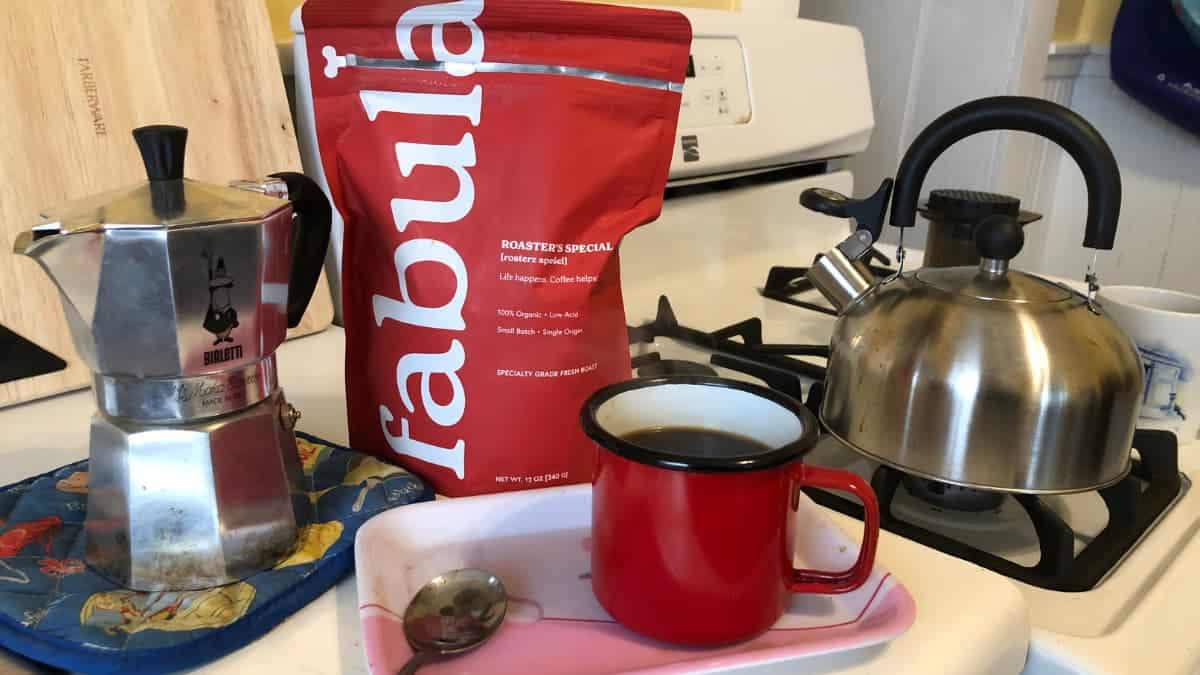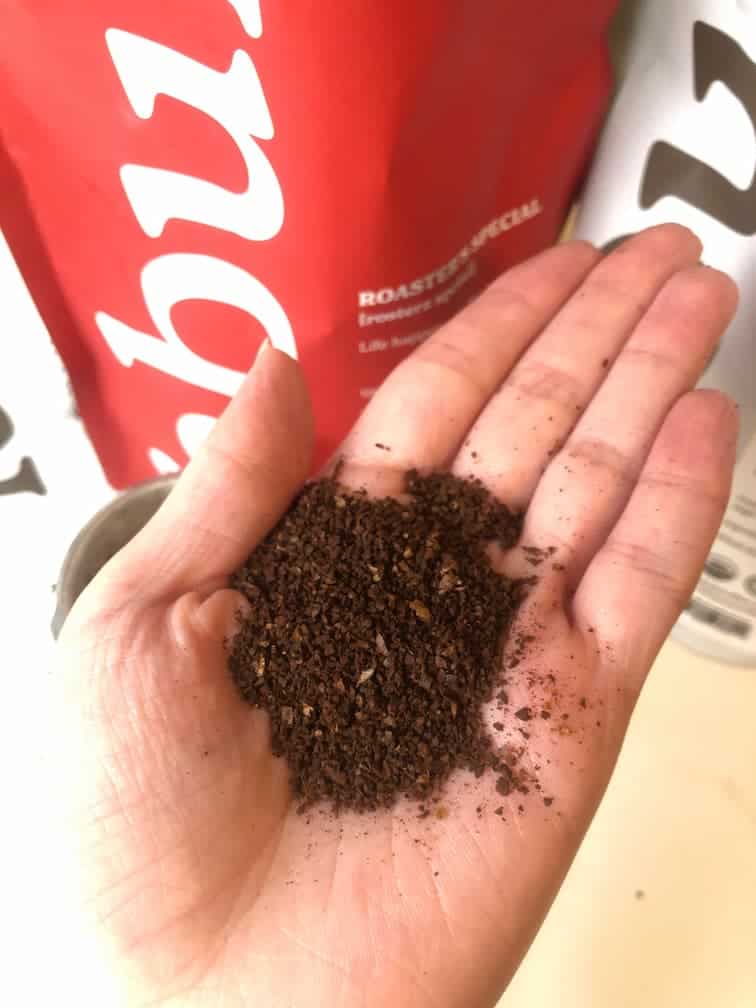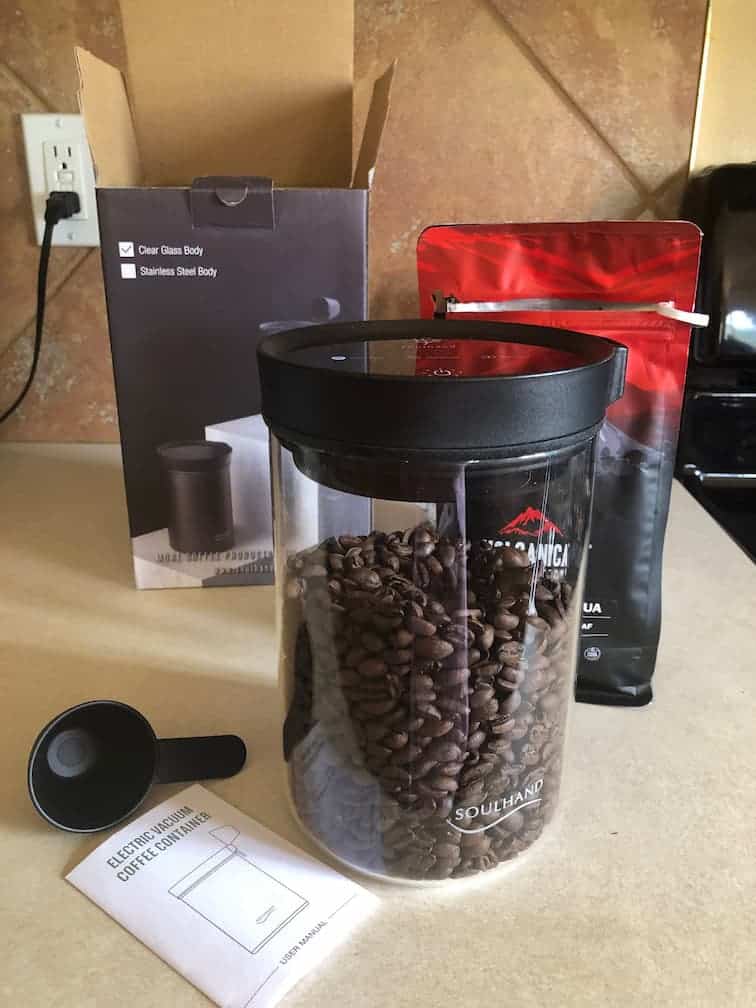Whole Beans VS Ground Coffee: A Big Difference Brewed?
In the whole bean vs ground coffee debate, the experts take sides and opinions fly. But you might feel lost. Does it matter whether you use whole bean coffee or buy it already ground?
If you like the freshest coffee, then your decision to use whole bean coffee or ground coffee does matter. Let’s look at how this one choice will affect your morning cup.

Whole Beans VS Ground Coffee
Coffee professionals have many different opinions on nearly every topic, but one they all agree on is that coffee should be ground fresh. That means buying whole coffee beans and grinding them at home.
But many coffee lovers groan at the idea of buying a grinder and grinding beans every time they need some coffee. The convenience of ground coffee is tempting. Is it necessary to go through all that grinding to get a delicious coffee?
To answer that question, let’s look at why we grind coffee in the first place.
Whole Bean Coffee
Whole bean coffee is, as it sounds, coffee beans that are still whole. It’s the coffee after its roasted and before it’s processed further. To be able to brew roasted coffee beans, you need to grind them first.
Grinding coffee beans creates smaller particles, and those tiny particles dissolve better in water. When you grind coffee beans, you extract the coffee flavors faster and more efficiently, giving you that coffee taste we love.
Ground Coffee
Ground coffee is coffee that has been ground by the company before they package it. Most bags of pre-ground coffee at the supermarket were roasted weeks or months before you have the opportunity to buy them.
You already know the importance of fresh coffee. After all, when you open a fresh bag of coffee, you’re immediately hit by the fragrance. You no doubt love that delicious coffee smell.
But if you go back to that same open bag of coffee weeks later, you will see that the fragrance has disappeared. That coffee now has an underwhelming smell. That fresh coffee is no longer fresh and has now gone stale.
You will notice it even more in the disappointing taste of coffee grounds have been sitting around for a while. Whole beans are large particles that are less affected by the environmental factors that make coffee go stale. The tiny particles of ground coffee, though, go stale fast.
So why do people use pre-ground coffee? One of the ground coffee pros is that it’s easy to brew. You simply scoop it out into whatever filter you’re using and you’re ready to go.
So convenience is the big reason why many coffee drinkers use pre-ground coffee. You save yourself some minutes and fuss and can drink coffee fast.
Which should you use, ground coffee or whole beans? As you can already tell, I’m on the side of whole bean coffee. But why? Let’s get into the nitty gritty of what happens to whole beans and grounds.
Whole Bean Coffee and Grounds Compared
There are four main aspects about coffee after it is ground. Let’s talk about flavor, how long the coffee lasts, how easy it is to brew, and how it should be ground.
Flavor
Everyone likes flavorful coffee. That’s a given. Which gives you more flavorful coffee, whole bean coffee or ground coffee?
The quick answer: Whole bean coffee that you grind right before using has better flavor.
That’s because elements like oxygen, sunlight, humidity and other factors degrade the coffee. As I mentioned, the smaller the particles (as when coffee is ground into a fine powder), the more surface area is exposed to those elements. Degradation happens faster, and coffee quickly goes stale.
Using whole coffee beans gives you the power to preserve the coffee’s flavors, eliminate sour coffee tastes, and minimize bitterness.
When you make coffee using freshly ground coffee beans, those ground beans are in their freshest state and conserve everything we love about coffee. That will give you the freshest cup of coffee possible.

Shelf Life
How fast does coffee lose its flavor?
The guidelines that the Specialty Coffee Association gives to coffee professionals give us a clue.
They dictate that for professional coffee tastings (called cuppings), the coffee has to be ground right before cupping.
How many minutes before brewing can they grind the coffee? (Notice I mentioned minutes, not days or hours).
Less than 15 minutes. Yes, they have to start brewing the coffee in under 15 minutes. Why?
Because after 15 minutes, those fresh coffee beans are no longer considered fresh. Seriously. So ground coffee has just minutes before it starts to lose flavors and taste harsh and bitter.
How long of a shelf life do whole bean coffees have? That’s a matter of debate, but experts in the industry usually talk about two months for specialty coffee.
If you’re not going for a high level of coffee, six months might be fine for you. But many coffee companies put the expiration date over a year after the roasting date, which most coffee lovers agree is way too long.
Brewing Ease
Brewing a fresh cup of joe as part of your morning routine can be a satisfying moment of the day. In fact, I get some of my best ideas when making my brew.
But some people need the brewing process to be over in a minute or two. For those with a time crunch, what’s easier to brew, pre-ground coffee or whole bean coffee?
Obviously, it’s easier to scoop out grounds into a filter and get brewing. Taking extra minutes to put whole bean coffees through a grinder can seem like a huge task for a rushed person trying to get out the door.
But what I’ve found is that when it becomes a habit, pushing a button on the grinder doesn’t take much more effort. And the results in the cup are fantastic!
That takes us to the next point, the most important one. Grind size.
The Grind
When you buy pre-ground beans, you can generally choose between two types of grinds. You can get it in an espresso grind or drip coffee grind size. That’s fine if the only brewing method you use is an espresso machine or drip coffeemaker.
If you brew in a variety of brewing methods, though, you run into more difficulties. There are a lot more grind sizes than just for espresso machines or drip coffee makers. In fact, there’s a whole range of grinds, from Turkish grind, extra fine, or medium fine, and all the way up to coarse grind.
Different brewing methods require different grind sizes, and it’s not always possible to buy that grind size in pre-ground coffee. Why do you need the correct grind size?
Let’s consider making coffee in a French Press brewing method. A French Press immersion brewing method needs coarse ground coffee because the finer the grind, the more the beans extract. With a long brewing time, the coffee will over-extract and taste bitter.
If you brew coffee in a method that brews fast, such as a Moka Pot, you need to use a finer grind size or your brew won’t taste like much.
Now you see the benefits of using whole beans. You can buy whole beans and grind them differently for every brewing method you own.
So if you need a coarser grind size for your AeroPress and your significant other needs an extra fine grind for their espresso machine, everyone can have what they need and create the perfect cup.
The grinding process doesn’t have to be complicated, although you do need coffee grinders. While serious coffee connoisseurs will often have a burr grinder, you can start off with less expensive blade grinders. You can grind the beans in just a minute. And with a burr coffee grinder, it can be as easy as pushing a button.
When considering buying whole beans or pre-ground coffee, the issue of quality also comes up. When you buy whole bean coffee, the defects in the bean are harder to hide.
When you buy ground coffee though…almost anything can be hiding in there.

Are coffee beans cheaper than ground coffee?
The price of coffee is based on volume and quality. When you compare two bags of beans of the same quality, the price for pre-ground coffee will generally be the same as for whole beans.
Sometimes it can seem that whole beans are more expensive, but it’s not because of whether it’s ground or not. It’s because it is a higher quality bean. Since most people who invest in a grinder are more interested in higher-quality coffee, you may see that whole beans are more expensive.
That higher price and higher quality bring benefits. When you buy whole beans, you can inspect the bean and know what you’re getting in the bag.
No doubt the biggest benefit when you buy fresh beans and grind them before brewing is that you’ll be getting more flavor and aroma. So even though the quality and price may be higher, you’ll be enjoying perfect brews.
Do you get more coffee with whole beans or ground?
Since coffee is sold by weight, you get what the bag says. Whether you’re buying pre-ground beans or whole coffee beans, you get what you pay for.
Since pre-ground coffee may be stale and have less flavor, you might find yourself using a lot more to get a flavorful cup of coffee. It can be less expensive in the long run if you buy higher quality whole beans and use what the brewing ratio requires.
Are coffee grounds and coffee beans the same?
Yes, coffee grounds and coffee beans are essentially the same: coffee. The difference is that pre-ground coffee has already been ground into a powder and is ready to brew. Coffee in bean form needs to be ground before you start the brewing process.
Wrapping Up: Ground VS Whole Bean Coffee
Should you use whole bean or ground coffee?
That depends on your brewing methods and what’s important to you. On the one hand, with pre-ground coffee beans you have convenience and ease of use. But whole beans give you more flavor and a delicious cup of coffee.
If you want a no-brainer routine and you don’t particularly care what your coffee tastes like, then you can buy pre-ground coffees.
If you do need to buy pre-ground coffee, buy coffee in smaller amounts and store it in an airtight container away from oxygen, light, and humidity.
If you are a coffee connoisseur who loves the complex tastes, intense sweetness, and brightness of a high-quality brew, you definitely want to go the whole bean route and grind right before brewing.
You’ll be rewarded with a rich-tasting brew and a coffee experience that keeps us coffee drinkers smiling through the day.

